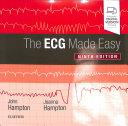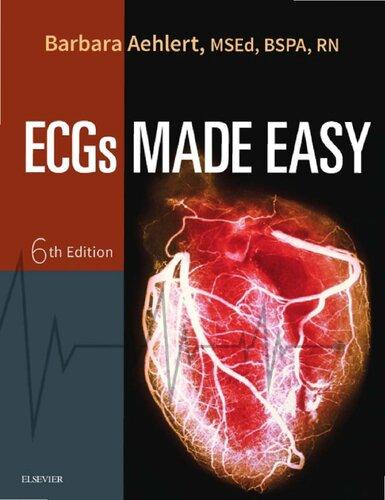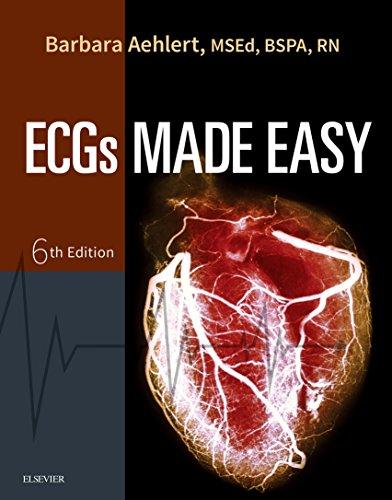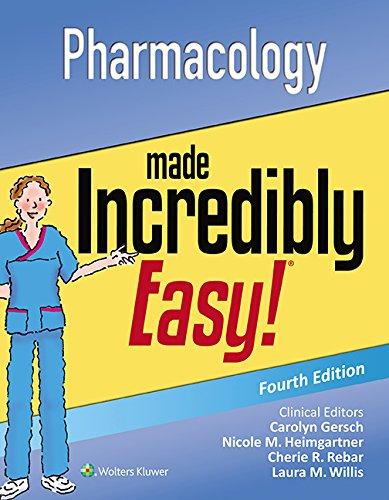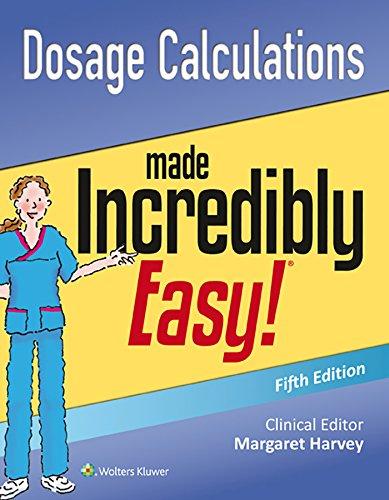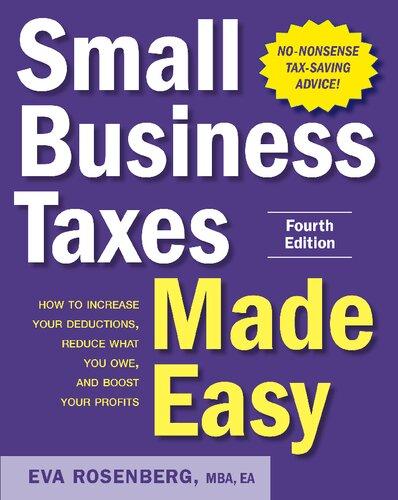HISTORY AND EXAMINATION
HISTORY
The history is the most important part of the neurological evaluation. Just as detectives gain most information about the identity of a criminal from witnesses rather than from the examination of the scene of the crime, neurologists learn most about the likely pathology from the history rather than from the examination.
The general approach to the history is common to all complaints. Which parts of the history prove to be most important will obviously vary according to the particular complaint. An outline for approaching the history is given below. The history is usually presented in a conventional way (see below) so that doctors, being informed of or reading the history, know what they going to be told about next. Everyone develops their own way of taking a history and doctors often adapt the way they do it depending on the clinical problem facing them. This section is organised according to the usual way in which a history is presented—recognising that, sometimes, elements of the history can be obtained in a different order.
Many neurologists would regard history taking, rather than neurological examination, as their special skill (though you obviously need both). This indicates the importance attached to history taking within neurology, and reflects that it is an active process, requiring listening, thinking and reflective questioning rather than simply passive note taking. There is now evidence that it is not just what the patient says, but the way he says it that can be diagnostically useful (for example, in the diagnosis of non-epileptic attack disorder).
The neurological history
• Age, sex, handedness, occupation
• History of present complaint
• Neurological screening questions
• Past medical history
• Drug history
• Family history
• Social history.
Another random document with no related content on Scribd:
“What am I to do? I can’t go on and leave my partner to stand off this robber gang alone. They’ll find our claim before I could get back. It’s our own creek they’re camping on, right now!” Then: “You say you are going out by way of Chalk Creek. I have a little money left; it isn’t much, but it’s all yours if you’ll take these horses and jades out to Nachtrieb’s ranch in the South Park and leave them there. Then I can go back from here and take my share of what’s coming to us.”
The big man got up and brushed the crumbs from his clothes.
“I can beat that all holler, if you’ll say the word. I sort o’ like your looks—liked ’em last spring when I chucked yuh in the seat with the li’l’ black-eyed gal. Yuh say yo’re aimin’ to hole up for the winter and work yer claim. S’pose yuh give me a job along with you and yer pardner and lemme go back with yuh? I can hold steel ’r pound it, and han’le powder. More’n that, I can shoot middlin’ straight when I aim to.”
“You mean you’d stand with us if the Neighbors bunch should try to jump our claim?”
“Why, suree! Yuh don’t reckon I’d go back on my bread and meat, do yuh?”
“But these beasts—what’s to be done with them?”
“I was comin’ to that. There’s a li’l’ ranch six-seven mile in the park ahead of us; it’s the place where I was aimin’ to get enough grub to walk out on. Queer old squatter runs it; li’l’ mite cracked in his upper story on religion, they say. He’ll winter the stock for yuh.”
“Still, that isn’t all,” Philip went on desperately. “We have laid in provisions for the winter, my partner and I; all we could afford to buy. The stake is enough for two, but if there are three of us, we’ll go short before spring. Besides, we haven’t enough money left to pay your wages.”
“Ne’m mind about the wages; they can wait. If half o’ what they’re sayin’ about this here strike o’ yourn is so, there’ll be ore enough on
the dump, come spring, to pay all the bills—and then some, I reckon. All I’ll ask’ll be a chance to stake a claim somewheres round next to yourn, maybe.”
“You won’t have to ask anybody’s permission to do that,” Philip put in. “But still there is the question of the short grub-stake.”
The big man grinned cheerfully. “Might trust in the Lord a li’l’ bit, mightn’t we? Maybe He’ll send us a short winter. Anyhow, I’ll take my chance o’ starvin’; it won’t be the first time by a long chalk. Whadda yuh say? Is it a go?”
It was far enough from Philip’s normal promptings to decide anything so momentous without due and thoughtful consideration. But the exigencies had suddenly become urgent. In his mind’s eye he could see the Neighbors gang of desperadoes besieging the log cabin, with its scanty garrison of two untrained defenders. One additional loyal pair of eyes and hands might turn the scale. Hasty decisions, headlong initiative, were the very essence of the time, and of the treasure-seekers’ existence. Impulsively he thrust out a bargain-clinching hand.
“It’s a go, if you want to throw in with us, and I’ll promise you you won’t lose anything by it,” he said. “What may I call you?”
“Name’s Garth—‘Big Jim,’ for short.”
“Mine is Philip Trask. We are strangers to each other, but that’s an even stand-off. I’m banking on you for what you did for the little girl on the train. Let’s hurry and find that park ranch you speak of. It’s running in my mind that we can’t get back to the claim any too soon.”
It was after they had mounted and were herding the jacks down the descending trail that Garth said: “What about the li’l’ gal with the sick daddy? Ever see her again?”
“Just once,” Philip returned, “five or six weeks after they reached Denver. The family was living in one of the tent colonies, and from what was said, I judged the father was pretty badly off.”
“Uh-huh,” said Garth. “You hear a heap nowadays about what the dry air’ll do for them lungers, but the health boosters tell only half o’ the story. That same old thin air kills ’em swift if they come too late. It shore do.”
By pushing the animals as fast as the hazardous trail would permit, the ranch in the inter-mountain park was reached in the shank of the afternoon. Philip made a hurried bargain with the ranch owner, a white-haired, white-bearded old man who might have figured as a reincarnation of Elijah the Tishbite; and after a consultation with Garth, refused the old man’s offer of a night’s lodging. Garth’s vote was for an immediate return to the “Little Jean.” The skies were clear and there would be a moon for at least the first half of the night.
“We’ve left a trail in the snow that a blind man could back-track on,” he pointed out. “I’m hep for the night tramp, if so be you are.”
Stiff from the long day in the saddle, Philip would have welcomed a blanket bed before the Tishbite’s hearth fire, but the urgencies were still acutely upon him; also, he was beginning to acquire the pride of the outdoor man. If Garth, who had already tramped miles before the afternoon meeting on the high pass, could stand it to keep on going, surely he could.
“We’ll tackle it,” he said shortly; and presently they were taking the steep mountain trail in reverse, slipping and sliding in the dry snow, but doggedly making their way toward the high, wind-swept pass.
Visioning that long night tramp in the moonlight, afterward, Philip knew it would be an enduring memory after many other experiences had faded and gone. The slippery trail; the black shadows of the trees while they were still in the foresting, and the blacker shadows of great rocks and gulch cliffs after they had climbed above timber line; the keen night wind sweeping over the bleak pass where they paused for a short halt in the lee of a sheltering boulder to eat a few mouthfuls of food before hitting the downward trail; the perilous descent to the headwater gulches of the Roaring Fork, where more
than once he owed his escape from a sudden plunge into unknown depths to the quick clutch of the silent giant plodding along tirelessly behind him—no detail of the deadening, soul-harrowing fight for endurance, lapsing finally into a sheer effort of the will to thrust one foot before the other, would ever be forgotten.
The moon had long since disappeared behind the uplifted skyline of the western ranges by the time they were measuring the last of the weary miles in the valley of the lucky strike. At the foot of one of the jutting mountain spurs, Philip broke the slogging monotony to say: “We’re almost there. The next gulch is ours.”
“Good enough,” was the muttered comment from the rear; and then, suddenly: “Hold up—hold your hosses a minute!”
Philip turned and saw Garth stooping with his rifle held in the crook of an arm. He was peering down at the hoof tracks they had been following.
“What is it?” he asked.
Garth pushed his flap-brimmed hat to the back of his head and looked up.
“Thought yuh said a while back that this here was your trail—the one yuh made comin’ out with the cavoyard this mornin’.”
“Well, isn’t it?”
“Not by a jugful—not unless yuh was walking the hull caboodle of ’em back’ards.”
“What’s that?”
“Sure as shootin’. The critters that made this trail was goin’ the same way we are. Get down and take a squint for yerself.”
Philip was about to comply when he saw a spurt of red flame leap out in the up-valley distance, the flash followed quickly by the reverberating echoes of a rifle shot. At the flash and crash Garth leaped afoot with a growled-out imprecation and worked the lever of his repeating rifle to throw a cartridge into the chamber.
“That means business, son! They’ve called the turn on us and got yer pardner in the nine-hole! Limber up that old hoss-pistol o’ yourn and p’int the way to get into your gulch without bustin’ in at the front door. That’s our chance—if we’ve got any. Jump to it!”
VIII
FAIRLY benumbed by the shock of the discovery that a battle for the possession of the “Little Jean” was actually in progress, Philip pointed to the right up a steep ravine.
“We can c-cross at the head of this draw,” he stammered, and it made him furious to find that he could not better control his voice.
“Let’s be moggin’ along, then,” said the man of action, immediately setting a pace up the wooded ravine that left Philip a stumbling straggler at his heels. “They’ve got that pardner o’ yourn holed up somewheres—in yer cabin, most likely. Reckon he’s got sand enough to hang on?”
“Harry?—he—he’ll hang on till they kill him!” Philip panted.
“What-all’s he got for fightin’ tools?”
“Two Winchesters.”
“Good a-plenty. How much furder do we keep to this here draw?”
“Another hundred yards or so; then bear sharp to the left.”
Following directions, the big man presently turned short into the ravine-side forest and began to climb, pulling himself from tree to tree up the steep acclivity with an agility that seemed to take no account of his great size and weight. Breathlessly Philip struggled after him, marvelling at the reserves of energy Garth was able to draw upon after a long day and night of steady tramping and mountain climbing. For himself, he was nearly at the collapsing point when they reached the easier going on the summit of the spur. As they pressed on, the spattering crackle of rifle fire came intermittently from the gulch, and at each fresh outblaze he started nervously and quickened his pace.
“For God’s sake, hurry!” he gasped. “They’ll murder Harry before we get there—if they haven’t already done it!”
But Garth read the story of the ragged firing with shrewder intelligence.
“That there powder-burnin’s a good sign,” he commented calmly. “Hit shows they ain’t got him yet, and ain’t rushin’ him. Keep me steered right. You know the lay o’ the land, and I don’t.”
“To your left again, now,” Philip directed. “There’s a little side gully along here somewhere ... if we can find it in the dark——”
As capably as if the darkness were interposing no obstacle, Garth found the head of the dry arroyo and the descent into the gulch of the mine was begun.
“Right careful, now,” he cautioned; “no slippin’ ’r slidin’ to make a fuss! Got to work Injun medicine on that crowd.”
Silently, the snow serving to deaden their footfalls, they worked their way to the gulch bottom and along its windings until Philip whispered: “Around the next turn ahead ... if there’s light enough, you’ll see our dump and the cabin.”
“Kee-rect,” Garth mumbled. “Stick to the shadders and keep that old hoss-pistol handy. Yuh ain’t no ways back’ard about aimin’ it straight, are yuh?”
“No,” said Philip; but he was promising for the intention rather than for the ability. He was trembling like a leaf in the wind. It was one thing to go into battle on the crest of a wave of berserker rage, and quite another to face the hazards deliberately and in cold blood.
With caution redoubled they turned the last of the jutting promontories obstructing a view of the lower reaches of the gulch. The young moon had long since dropped behind the western ranges, but the reflection of the starlight upon the white mantling of snow made the dump of broken rock and ore marking the tunnel site, and beyond it the larger bulking of the cabin, dimly discernible. Garth thrust a hand backward to signal a halt, and as he did so, a jet of
flame shot from a thick graving of young firs on the right-hand slope of the gulch opposite the cabin, and, preceding the jarring report by a fraction of a second, they heard the smack of the bullet as it struck its target.
“Reckon I called the turn,” Garth whispered. “Yer pardner’s holdin’ the cabin ag’in ’em. Ain’t no back door to that shack, is there?”
“No.”
“Well, there ain’t a ghost of a show for us to make a run for the front door; they’ve got that plum’ sewed up. We got to work it some other way. We’d ort to have one o’ them Winchesters o’ youm and a belt o’ ca’tridges. That old hoss-pistol won’t spit far enough to do much good.”
“But if we had the rifle?” Philip queried.
“Then we might work a li’l’ trick that’d be better than breakin’ into the cabin: might make them cusses think the whole U.S. army was after ’em.”
Philip’s heart rose into his throat and threatened to choke him. On the hurried race across the spur his teeth had been chattering, and it was only by the supremest effort that he could keep them from rattling like castanets now. If the extra rifle was to be secured, it was his part to stalk the cabin and get it: Garth couldn’t do it; Bromley wouldn’t surrender the gun to a stranger—if he were still alive it was more than likely that he would mistake Garth for one of the outlaws and kill him if he could find a convenient loophole through which to shoot.
Philip felt a cold sweat starting out all over his body. If he could only summon the flaming rage fit that had possessed him on the night when he had flung himself upon the drink-crazed prospector in the bar-room of the Leadville hotel ... he prayed for its return, but it wouldn’t come. By a curious telepathic prickling he knew that the big man crouching beside him sensed his condition, and his shame was complete.
“You skeered?” queried Garth in a hoarse whisper.
“As scared as hell!” was the gritting reply. “Just the same, I’m going after that extra gun. What shall I do after I get it?”
“First off, you tell yer pardner to hold his hand till he hears the big racket beginnin’, and then to blaze away like sin at anything in sight. Next, you keep right on down the gulch and make a round and get on the hill behind that bunch o’ saplin’s. When you’re all set and ready, blaze away, and I’ll whale at ’em from up here, and yer pardner’ll chip in from the cabin. If that don’t stampede them cusses, nothin’ will.”
Philip tightened his belt. “I’ll probably get killed trying, but here’s ffor it,” he stammered; and in a chilling frenzy of the teeth-chattering he began to worm his way down the gulch toward the dump and the cabin.
How he contrived to drag himself over the short three hundred yards, with every nerve and muscle straining to turn the advance into a shameful retreat, he never knew. Every time another gunshot crashed upon the night silence he fancied he was the target and flattened himself with the blood slowly congealing in his veins. None the less he kept on, hugging the shadows and taking advantage of every inequality of the ground that would afford even the scantiest cover.
At last, after what seemed like an endless eternity of the creeping, dodging progress, he found himself behind the cabin and sheltered by it from the desultory gunfire which still kept up from the opposite slope of the gulch. With his pocket knife he dug the clay chinking from between two of the logs and listened. There was no sound from within, and again his blood ran cold. Had one of the random bullets found its mark and killed Bromley? He remembered, with a tingling shock of terror, that all of the later firing had been on the part of the outlaws; there had been no replies from the cabin.
Hastily enlarging the hole in the chinking, he put an eye to the orifice. The interior was not wholly dark, as he had expected to find
it. There was a handful of embers on the hearth, and the glow made a murky twilight in the cabin. Presently he made out the slender figure of the play-boy stretched flat upon the earth floor, face downward, and the blood-chilling shock came again. Then he looked more closely and saw that the prone figure was not that of a dead man. Bromley was alive and alert; he was lying behind a low breastwork built of the provision sacks, and he had one of the rifles at his shoulder with the muzzle thrust through a crack between the logs. Philip gulped and shut his eyes. The sudden revulsion from horrified despair to relief made him blind and dizzy.
Another shot from without steadied him and he called softly through the opening he had made. Bromley heard, and recognized his voice.
“You, Philip? How the mischief ... where are you?”
“At the back—where the chinking is out. Don’t you see?”
“Coming,” said the one-man garrison, and as he crawled slowly across the floor Philip could see that one leg was useless; it was bound with a clumsy handkerchief tourniquet above the knee and was dragging.
“Damn them!” he whispered fiercely. “How badly are you hurt, Harry?”
“Can’t say; haven’t had time to look at it. But the honors are easy, so far: I got one of them to pay for the leg, and got him good—I saw ’em carrying him off. Where the devil did you drop from?—out of the blue?”
“Never mind that part of it now. I want one of the rifles and a belt of ammunition. Hook ’em over here while I dig this hole big enough to take them through!”
The transfer was quickly made, and with the gun in his hands, Philip delayed only long enough to get a briefed story of the attack. Bromley had been routed out of his bunk about an hour earlier by somebody hammering on the door. When he opened in answer to the knocking there was a short and brittle parley. Neighbors had
made a blunt demand for a surrender of the mining claim, asserting that it was his discovery, made early in the summer.
“Naturally, I told him to go chase himself,” said the play-boy. “Then the five of ’em started to rush little Harry, and one of them got me in the leg with a pistol shot before I could slam the door and drop the bar. I punched a hole in the chinking, and a few rounds from the Winchester drove ’em back into the woods for cover. They’ve been there—or four of ’em have—ever since, taking pot shots at the cabin. Now tell me what happened to make you turn back.”
“Just a piece of good luck—the story will keep till we’re out of this mess. You’re not fighting alone any more; there are two of us on the outside. Keep down and don’t let them get you through the door. Those slabs won’t stop a rifle bullet.”
“Haven’t I found that out?” said Bromley, with a grim chuckle. “But tell me—what’s the plan of campaign?”
“This: I’m going to try to circle around and get behind that bunch of trees where they’ve taken cover. I’ve picked up a helper—an old prospector and mountain man that I met last spring. He has his own rifle, and when the circus begins, you turn loose through your loophole and pump lead just as fast as you can. In that way we’ll get ’em from three directions at once. Will that hurt leg let you do your part?”
The grim little chuckle came again. “I don’t shoot with my legs. Wave your little baton and I’ll come in on the fortissimo passages.”
“That’s all, then. Take care of yourself, and don’t unbar the door until you are sure we are on the other side of it. I’m gone.”
While he had the shelter afforded by the cabin there was some little sense of security. But as soon as he got beyond this bulwark the shaking fit seized him again. For the first few yards there was little or no cover save a few stumps and a pile of firewood, and behind these he crept, hardly daring to breathe. He had buckled the filled cartridge belt around him, but the rifle was an impediment that could not be disposed of so easily. So long as he must crawl, he had
to drag the weapon along as best he could; and remembering that he had heard that even a plug of snow will cause a gun barrel to burst when it is fired, he halted behind the woodpile and stopped the muzzle of the rifle with a rag torn from his handkerchief.
From the woodpile to the nearest forest cover on that side was only a matter of a few rods, but the interval was bare, and he had to have another fight with himself before he could drum up the courage to cross it. Once among the trees, however, he felt safer; and after he had emerged from the mouth of the gulch and could take shelter in the groving of aspens that lined the valley stream, he told himself that the worst was over.
In the fringe of quaking aspens he stumbled upon the horses and jacks of the invaders, the burros still standing with their packs on. It was not until he was fairly among the tethered animals that he remembered the man that Bromley had shot, and reflected that if the outlaw was only wounded, he would be somewhere near the horses. The thought had barely flashed upon him before he saw the wounded man. He was sitting with his back to a tree and mumbling curses. Philip slipped aside cautiously and pushed on, again with cold chills racing up and down his spine. The wounded man was evidently only half conscious.... If he had been fully conscious....
Philip broke into a nervous run, following the stream for possibly an eighth of a mile before he ventured to turn aside to climb the slope which should lead to the outlying position above the thicket in the gulch where the outlaws were in hiding.
Toiling upward breathlessly, it seemed to take him a frightfully long time to gain the proper elevation. Unlike the spur on the western side of the gulch, this one was thinly wooded and was besprent with a scattering of boulders; he was in constant fear of dislodging one of these and thus giving a premature alarm. With the occasional crack of a rifle in the depths below to guide him, he finally reached a height from which he could look down upon the clump of young firs; and squeezing himself between two of the surface boulders he
pumped the loading lever of the Winchester and prepared to give the firing signal agreed upon.
It was while he was steadying the rifle over the rock in front of him that he felt something giving way and realized that the slight push of his wedged-in body was tipping the bulwark boulder over to set it in motion down the slope. In a frenzy of excitement at this discovery his only thought was that with the boulder gone he would lose his sheltering breastwork and be naked to rifle fire from below.
Dropping the gun, he clung to the tilting rock with both hands and tried to hold it—to drag it back upon its balancing pinnacle. When his puny effort failed, and the great rock turned slowly over to go bounding down the declivity straight for the sapling grove and carrying a small avalanche of lesser stones with it, he lost his head completely, snatching up the rifle and firing it wildly again and again, and with no attempt at taking aim, until he had pumped the last cartridge from its magazine. It was this final shot that did for him. In his mad haste he failed to hold the gunstock firmly against his shoulder, and at the trigger-pulling the kick of the weapon slewed him around with a jerk that snapped his head against the rock behind him. For a brief instant the black bowl of the heavens was illuminated by a burst of fiery stars, and after that he knew nothing more until he opened his aching eyes upon a graying dawn to find Garth kneeling beside him, unbuttoning his shirt to search for the presumptive effacing wound.
At the touch of the big man’s cold hands he sat up, with the buzzing of many bees in his brain.
“It isn’t there,” he said; “it’s the back of my head. The gun kicked me against the rock. How long have I been gone?”
“A hour ’r so. I allowed yuh was scoutin’ round to see what’d come o’ the jumpers; was why I didn’t come a-huntin’ for yuh. Besides, that there game li’l’ pardner o’ yourn was needin’ to have his laig fixed up.”
“What hasbecome of the jumpers?” Philip asked, holding his head in his hands in a vain endeavor to quiet the bees.
Garth sat back on his heels and his wide-mouthed smile made him look like a grinning ogre.
“Skedaddled; gone where the woodbine twineth an’ the whangdoodle mourneth for her fust-borned, I reckon. Cattle o’ that sort ain’t makin’ no stand-up fight, less’n they got the odds alltheir way. And what with this here mount’in tumblin’ down on ’em, and guns a-poppin’ three ways from the ace, they wasn’t stayin’ to wait for daylight—not any.” Then: “That was a mighty fly li’l’ trick o’ yourn —shovin’ a rock slide down at ’em.”
Philip was honest enough not to take credit for a sheer accident.
“I didn’t,” he denied. “I had jammed myself in between two rocks to get cover, and I was scared stiff when I found the front one rolling away from me; I was even silly enough to grab it and try to hold it back.”
“Ne’m mind; hit done the business, all the same.” A pause, and then: “I took a li’l’ squint at yer strike afore I clim up here. You two boys’ve sure had a chunk o’ tenderfoot luck! You’ve got the world by the horns if that streak o’ pay rock don’t play out on yuh too soon. Hit’s richer’n Billy-be-damn, right from grass-roots. Time she’s had a winter’s work put in on ’er, there’ll be money enough on the dump to buy yuh a whole raft o’ farms in God’s country. Reckon that bumped head’ll let yuh drill down to the cabin? Or shall I h’ist yuh onto my back and tote yuh?”
“I can walk,” said Philip, struggling to his feet. And after the descent was begun, with Garth’s arm to steady him: “Harry’s leg—how badly is he hurt?”
“Clean hole, and no bones broke. It’ll lay him out for a spell, but that’s all.” Then, with the approving chuckle that Philip was learning to anticipate: “Lordy-goodness! you couldn’t kill that nervy li’l’ pardner o’ yourn with a axe! And a while back I was foolish enough in my head to ask yuh if he had sand enough to hold them pirates
till we got to him! Why, say; he’s all sand—that li’l’ rat is! Just laughed like I was ticklin’ him when I was diggin’ in that hole in his laig to clean it out—he did, for a fact! Yuh needn’t never worry yore head a minute about thatboy.”
IX
THE beginning of the week after the clash with the claim jumpers found the routine which the owners of the “Little Jean” hoped to maintain through the winter catching its stride. True, Bromley was out of the activities for the time being; but even as a cripple he contributed his part by refusing to let Philip or Garth make a trip afoot to Leadville on the slender chance of being able to persuade a doctor to cross the ranges in the perilous edge of the closed season. As to this, however, a second snowfall, coming almost upon the heels of the first, shut them off conclusively from the outer world, and their isolation was complete.
“It’s perfectly all right,” Bromley maintained cheerfully. “I’m doing fine—couldn’t be doing any better if I had all the doctors in Leadville. The only thing that nags me is the fact that I’m tied down and can’t pull my weight in the boat.”
“You have good and well earned all the time you have to lose,” was Philip’s retort to this plaint; and with Garth as an able team-mate he completed the preparations for the winter, cutting down trees for firewood, setting up a third bunk in the cabin, and building a small lean-to for the storing of the provisions and explosives.
When it came to a resumption of the mining operations, Philip found that they had acquired much more than a mere day-laborer in the experienced mining man. Quite apart from his great strength and apparently unlimited capacity for hard work, Garth’s practical knowledge of development processes proved invaluable, and it was at his suggestion that the tunnel was straightened and enlarged, its future drainage and ventilation provided for, and a rough-and-ready process of hand-picked ore-sorting made a part of each day’s task.
“You got to look ahead a mile ’r so in this here minin’ game,” was the experienced one’s business-like argument. “You let on like you boys ain’t got the spondulix to buy a stamp-mill and tote it in over the mount’ins, so you either got to make a stock comp’ny o’ this bonanza o’ yourn ’r else lease it. Either way the cat jumps, it’s agoin’ to pay big if yuh’ve got a sure-enough mine, with rich ore on the dump, to show up next spring.”
For two tenderfoots to whom, as yet, all things mining-wise were unknown quantities, this practical advice was as water to the thirsty, so the development work was planned accordingly. By the time Bromley’s wound had healed and he was able to take his shift as third man in the heading, the work of drilling and blasting had been expertly systematized, and the stock of selected ore was growing day by day.
Speculations as to what had become of the would-be jumpers died out after the first heavy snowfall, which blocked, not only the mountain passes, but the high-lying valley as well. Garth had argued from the first that, with at least one wounded man in the party, Neighbors would not try to hold his footing in the snowbound western wilderness through the winter.
“Now that he knows whereabouts them high-grade assays o’ yourn come from, he’ll know how to beat the rush that’s shore goin’ to come chargin’ in here the minute the passes are open in the spring,” was Garth’s answer to the speculations; and since the snow blockade, daily added to, shut all intrusion out, no less effectually than it shut the occupants of the lonely log cabin in, the stirring incidents of the night of battle became only a memory, and the day’s work filled the cup of the days to overflowing for the three who had elected to brave the winter in the solitudes.
The severity of the winter of 1880-81 in the mountains of Colorado had—and still has—for its reminiscent chroniclers all those who endured the rigors of that Arctic season. The trio in the high-pitched valley of the Saguache were not the only mineral-mad gold-hunters who, deliberately or in tenderfoot hardihood, disregarded the
warnings of the old-timers and stayed afield, many of them without adequate supplies, and lacking the skill and experience necessary to successful pioneering in a snowbound wilderness. As a consequence, the hard winter took its toll on many a mountain side and in many an isolated gulch. Snow slides swept precariously situated log cabins from bare slopes, or buried them fathoms deep in débris in the gulches. In the ill-provided camps starvation stalked abroad; and though there was game to be had, it could not be pursued without snow-shoes; and few, indeed, were the neophytes who had had the foresight to include snow-shoes in their winter camp kits.
As for the three burrowing in the gulch of the “Little Jean,” the hardships played no favorites, though Garth’s fund of experience stood them in good stead, tiding them over many of the exigencies. Before they became entirely shut in, the big man stalked and shot a deer: the meat was smoke-cured and added to the store of provisions, and the skin, Indian-tanned, served for an extra bunk cover in the cold nights. But with the coming of the heavier snows deer-stalking became impossible, so that source of food supply was cut off for the future.
Fortunately, by the middle of December, by which time zero-andbelow temperatures were clamping the western slope wilderness in an icy vise, they had driven the mine tunnel to a depth to which the outdoor frigidities only partly penetrated; hence they were still able to carry on the mining operations. But the deepening drifts in the gulch were now threatening to bury the small cabin, chimney and all, and no little of their daylight time was spent in keeping the snow shovelled from the roof, and the paths open to the tunnel, to the woodpile and to the creek from which they were still obtaining their drinking water.
Life under such conditions—complete and unbreakable isolation, day-long toil, much of which must be squandered in a bare struggle for existence, and the constant and wearing demand upon fortitude and endurance—exacts penalties in whatever coin the debtor may be able to pay. For Philip Trask, his uneventful youth and early
manhood, with its years running in the well-worn grooves of tradition and the conventional, faded and became as the memory of a dream—a memory which was dimming day by day and withdrawing into a more and more remote distance.
It was in the long winter evenings before the hearth fire in the halfburied cabin that he began to understand that Bromley was humanly and socially the better man; that there was in him a fine strain of gentle breeding which not only enabled him to rise superior to environment and association, but also gave him an outlook upon life unattainable by the under-gifted. From the beginning the play-boy had struck up a friendship, or rather an affectionate comradeship, with Garth that he, Philip, could not bring himself to share, try as he might. Little things, even the mountain man’s crudities of speech, jarred upon him. It was quite in vain that he called himself hard names, asking himself why he, of all men, should yield to the nudgings of an intellectual or social snobbishness. But the fact remained. Bromley could bridge the social gap between himself and Garth apparently without effort; could and did. In the pipe-smoking hours before the cabin fire it was the play-boy and the bearded frontiersman who were companions, while Philip found himself sitting apart and brooding.
“How do you do it, Harry?” he asked, one evening when Garth, who thought he had seen deer tracks in the snow, had gone out to the water hole in the creek to try for a moonlight shot at more meat.
“Do what—chum in with Big Jim? Why shouldn’t I? He’s a man, isn’t he?”
“Yes; but you and he have absolutely nothing in common. Garth washes his face occasionally and calls it a bath; keeps his fingernails in mourning; shovels his food with a knife; rolls into his bunk with his boots on if he happens to forget to take them off.”
Bromley smiled and relighted his pipe.
“You have some queer notions in that narrow old Puritan head of yours, Phil. Don’t you know that humanity is all common?”
“Is it?—from your point of view?”
“It’s the surest thing you know. ‘For a’ that an’ a’ that, a man’s a man for a’ that.’ Big Jim is a diamond; an uncut diamond, I grant you, but the pure quill is there, just the same.”
“Think so? By his own tell he is a spendthrift drunkard and gambler when he has the means to buy or bet.”
“Well, what of that? Does the foolish evil cancel all the wise good? When it comes to that, how many of us have a clean slate? I’m sure I haven’t, for one. How about you?”
Philip was silent for a time, and when he spoke again it was to say, rather complacently: “I think you have seen the worst of me, Harry.”
Bromley smiled again and shook his head. “I’ve seen the best of you, Phil. I’m only fearing the worst.”
“Thanks”—curtly; “you have said something like that before. Make it plainer.”
“I don’t know that I can; or that you’d thank me if I could. It is merely the potentialities, I guess.”
“My potentialities for evil?”
“Both ways. You are, or you have been, virgin ground. This gold hunt is the first thing that has ever put the plow into you. It remains to be seen what kind of soil it is going to turn up. Don’t you feel that, yourself?”
“I don’t know why it should turn up anything different.”
“I suppose you don’t: no man has ever seen the back of his own neck—or the close limitations of his own rut. But the furrow is already started. You are not the man you were when we took to the tall hills last summer.”
“Better, or worse?”
“Let us say different. The man you are now would never go back to school-teaching in New Hampshire.”
Philip nodded morosely. “I admitted that, a good while ago, if you’ll remember. But we were talking about Garth. What are we going to do with him after the winter is over? Pay him his wages and tell him to go?”
“I have been thinking about that. It occurs to me that we already owe him more than wages. If you hadn’t met him on the way out with the ponies and brought him back with you——”
“I know; you couldn’t have held out alone against the Neighbors gang very long; and if I had come back by myself, there might have been a different story to tell. When I made the bargain with Garth, he said all he’d ask would be a chance to locate a claim near ours.”
“Anybody who gets here first can have that.”
“That is what I told him. Never mind; we’ll see about his case when spring comes. I’ll agree if you think we ought to do something better than day-wages for him.”
Further talk about Garth and his deserts was halted by the incoming of the man himself, empty-handed.
“No good,” was his grumbling comment on the night deer stalking. “Reckon we don’t get us no more deer meat this winter. I like to got bogged down myself, gettin’ out to the water hole. There shore is one big heap o’ snow in this neck o’ woods, if you’ll listen at me. And more a-comin’.”
“Another storm?” said Philip.
“Shore as you’re a foot high. And that makes me say what I does. I don’t like the looks o’ the way she’s pilin’ up on the spur back o’ this wickiup of ourn. The timber up there ain’t thick enough to hold ’er if she gets much heavier. There’s two ways it can slide; down to-wards the creek, ’r straight down thisaway. Here’s hopin’.”
This was disturbing news. They had already seen one slide come down on the opposite, thinly wooded side of the gulch, and it had afforded an object-lesson as convincing as it was startling. Garth had had hair-raising stories to tell of prospectors’ cabins crushed and
buried under thousands of tons of snow and débris, and their cabin site had been chosen wholly without reference to safety from this peril.
“Can’t we do anything more than hope?” Philip asked, making room for the giant before the fire.
“Could, maybe, if we had snow-shoes.”
“How?” It was Bromley who wanted to know.
“Shuffle up yonder and start the slide sideways with a blast. But we ain’t got the shoes; and there ain’t nobody goin’ to h’ist hisself up on that li’l’ hill without ’em. Yuh can bet your bottom dollar on that.”
Garth’s prediction of another storm had its fulfilment within the next few hours; and for two days and nights the feathery burden sifted down almost continuously, adding unmeasured depths to the already heavy blanketing of a whitened wilderness. Trees that had withstood the storms of many years came crashing down under the added load, and for the first time in the winter the three cabin dwellers were forced to resort to melted snow for their drinking and cooking water; it was impossible to keep the trail open to the creek; indeed, for the two days of storm they found it useless to try to work in the mine.
During the period of enforced idleness, Garth busied himself hewing and whittling out a pair of skis, for which the light spruce they had cut for firewood furnished the material. Asked what he meant to do with his footgear, he was non-committal, merely saying that he wanted to be doing something, and that the skis might be handy to have around if the spring should be late in coming.
“We’re chawin’ a mighty big hole in the grub-stake,” he added. “Maybe we’ll have to take to the woods, yit, for more meat.”
But a starker use for the skis presented itself two nights later, when they were all awakened by a muffled crash that made the solidly built cabin rock as if shaken by an earthquake shock. Garth was the first to leap afoot and give the alarm.
“Grab for yer clothes and blankets and run for it!” he shouted. “It’s the slide a-comin’ down!”
Struggling into their clothes in frantic haste, the two who were the most unready to fly for their lives joined Garth in the small cleared area they had been keeping open in front of the cabin. It was a bright, moonlit night, clear, calm and deadly cold. From the shovelled areaway they could see that the low cliff behind the cabin had disappeared, its place being taken by a slanting snowbank reaching up to the steep slope of the mountain above. On the height they could plainly see the gash left by the sliding mass that was now filling the space between the cliff and the cabin and heaping itself well up toward the ridge-pole on the roof.
“There she is,” said Garth, pointing. “If that other chunk lets go, it’ll be hell and repeat for the cabin! We got to get a hump on us, mighty sudden!”
“But what can we do?” Philip demanded.
“Ain’t but one thing. That snow mount’in a-hangin’ up there over us’ll have to be eased down slaunchwise, ’r we’ll have it on top of us, shore as shootin’. Come inside and dig out the powder and fuse whilst I’m riggin’ for it!”
A handful of brush thrown into the fireplace blazed up, illuminating the interior of the cabin fitfully. In the firelight they could see that the rafters on the side facing the cliff were buckling dangerously. Opening the door communicating with the lean-to where they stored the provisions and explosives, they found the roof crushed in and the contents of the small room half buried in snow. Garth had flung the deerskin over his shoulders and was belting it about his waist. “One of you get them skis down,” he commanded.
It was Philip who took the skis from their pegs on the wall, but it was the play-boy who cut in quickly to say: “See here, Jim; it isn’t your job to go up there and shoot that drift! Let me have those skis.”
“Like hell I will!” was the brusque refusal. “Didn’t you tell me, t’other day, that you’d never had ’em on? Gimme that powder and fuse.”
“But there’s nothing like this in your contract,” Bromley insisted.
“Contract be damned! You goin’ to stand there chewin’ the rag till that drift comes down and chokes you off? Gimme that stuff!”
“The dynamite will be frozen—it’s frozen now,” said Philip.
“It’ll be thawed out good-and-plenty, time I get up there,” Garth asserted, cramming the coil of fuse into a pocket and opening his shirt to thrust the dynamite cartridges in his armpit next the bare skin. “Open the door and lemme out!”
Bitter cold as it was, they sallied out with him and watched him as he “crabbed” over the drifts sidewise and began the ascent on the nose of the spur. There was nothing they could do. Until the menace of the overhanging avalanche should be removed, it would be a mere flirting with death to try to relieve the cabin roof of its buckling burden. In a few minutes Garth became a shapeless, climbing blot in the moonlight on the bare slope, the muffling deerskin making him look like a clumsy animal. That he could reach the critical point, impeded as he was by the awkward foot-rigging, seemed incredible to the anxious watchers below. Yet without the skis to support his weight, he could have done nothing.
“Th-there goes a brave man, if you’ll l-listen to me!” stammered Bromley between his teeth chatterings. Then: “D-did you say something a time ago about dirty fingernails and such small matters?”
“Don’t!” exclaimed Philip sharply. And after a breath-holding moment: “I’m a cad and a coward, Harry. I let you try to make him turn that job over to you a few minutes ago, and I never said a word: I was scared crazy for fear you’d insist upon the three of us drawing straws for it and the lot would fall to me! That is God’s truth. Now and then I get a glimpse of the real man inside of me, and then I know I’m not fit to live in the same world with you and Jim Garth.”
“Easy,” Bromley deprecated. “After all, if the thing can be done, Garth is the one who can come the nearest to pulling it off. We both
know that—and he knows it, too.”
The big man had climbed out of sight behind a clump of trees, but now he reappeared higher up the slope and not far from the impending mass that was threatening to break down upon the cabin. They saw him prodding in the snow with the staff he carried and knew he was planting the dynamite.
“Good Lord!” groaned Bromley, “why doesn’t he get above it? If he fires it from where he is now, it will catch him, sure!”
“It’s the drift; he can’t get above it—don’t you see how it lips out over his head? Besides, it’s got to be shot from that side. If it isn’t, it will come straight down this way.”
“But, Philip! It’s suicide for him to shoot it from where he is now!”
“It looks that way. But that’s what he is doing. He is lighting the fuses now—don’t you see them sputtering?”
Garth had risen to his feet, but now they saw him stoop again, as if he were adjusting the fastenings of the skis. In the brilliant moonlight they saw, or fancied they could see, the thin, wavering curls of smoke rising from the burning fuses. Still the big man was crouching within arm’s-reach of the blasts he had planted and set alight.
“God in heaven! Why doesn’t he get away from there?” The words stuck in Philip’s throat and became an almost inarticulate cry. Garth was up again and was evidently trying to edge away along the steep snow slope. It was plainly apparent that something had gone wrong with one of the long, unmanageable skis. For two or three of the edging steps he contrived to keep it under him; then it came off and slid away down the slope, and the two watchers saw him fall sidewise, buried to the hip on the side that had lost its support.
With terrifying distinctness they saw him struggle as a man fighting desperately for life. With one ski gone, the other was only a shackle to hold him down. Fiercely he strove to kick the manacling thing off, beating frantically with his bare hands, meanwhile, at the sputtering
fuses in an effort to extinguish them before the fire should reach the dynamite. At last he gave over trying to free himself from the one encumbering ski, and struggling out of the snowy pit into which his exertions had sunk him, sought to roll aside out of the path of the impending avalanche.
Given a few more precious seconds of time he might have made it. But the reprieve was too short. Before he had floundered a dozen yards the snow dam holding the huge cliff-top drift in leash leaped into the air like a spouting geyser to the muffled cough of a triple explosion, and an enormous white cataract poured into the gulch a short distance valley-wards of the half-buried cabin.
“Shovels!” Bromley yelped; and together the two horrified witnesses raced up to the tunnel for digging tools. When they ran back they had to wallow waist deep in the yielding mass to reach the spot where the tip of an up-ended ski marked the grave of the buried man; and they had little hope of finding him alive as they burrowed desperately to uncover him.
But Big Jim’s time to die had not yet come. When he had found himself going, he had had the presence of mind to draw a fold of the deerskin over his face, holding it with a crooking arm. He was all but asphyxiated when they dragged him out of his snowy grave, but the fresh air soon revived him; apart from a wrenched ankle owed to the too-well fastened ski, he seemed to be unhurt.
None the less, back in the cabin and hovering over a roaring fire in an attempt to thaw himself out, the big man began to shake as if in an ague fit, paying the penalty of his violent exertions in a teethrattling chill. In buying the winter’s supplies in Leadville, Bromley had included a bottle of whiskey for emergencies. Philip searched for the bottle in the wrecked storeroom, found it unbroken, and poured a drink for Garth. The effect was magical. The chill subsided and Garth begged for another drink, the single potation making him loose-tongued and volubly eloquent. Philip said “no” firmly, and hid the bottle; after which, with Bromley’s help, he got Garth out of his wet clothes and into his bunk.
The giant fell asleep at once, or seemed to; and after deciding that the buckled cabin roof would hold until they could have daylight for its unloading, the two who were still stirring dried themselves out before the fire, covered the embers and went to bed. When they awoke, the sun was shining in at the single small window of the cabin, and Garth was still asleep, or he appeared to be. But the empty whiskey bottle lying on the earthen floor beside his bunk told another story.
“Look at that! There’s your ‘rough diamond’—dead drunk!” Philip commented scornfully, sitting up in his bed and pointing across to the comatose figure in the opposite bunk. “He was only shamming after we put him to bed last night. He waited until we were asleep and then got up and found the liquor. I have no use for a man who has no more self-control or decency than that!”
But the play-boy was shaking his head.
“‘Touching the righteousness which is in the law, blameless’,” he quoted sardonically. “That’s you, Philip. It’s a gruesome thing to have lived such a truly good life oneself that one can’t light a little candle of charity for the poor sinners. I can’t forget that Big Jim risked his life last night and nearly lost it—to save us from being turned out homeless and starving in this howling desert. Let’s get a bite to eat and unload this roof while he’s sleeping it off.”
XWITH the threat of the snow slides definitely removed, the routine of ore-digging was resumed. Deeper and deeper the tunnel was driven into the mountain, and each day saw the accumulation of ore and broken rock on the dump grow in proportion. Nothing was said by any one of the three about Garth’s night raid on the whiskey bottle; but Philip’s attitude toward the big miner was stiffer for the lapse— as Bromley’s was gentler. Since there was no more liquor in the stores, there were no more lapses; and no fault could be found with the way Garth spent himself in the drilling and shovelling, the orecarrying and sorting.
After a fortnight of bright sunshine in January, with a thaw that merely compacted the surface of the great snow blanket without perceptibly thinning it, the cold weather came again; there were night temperatures that made the green logs of the cabin walls crack and snap with sounds like pistol shots, and the clay chinkings became broad lines of hoar frost—this though the fire on the hearth was never allowed to die down. With an ample supply of fuel they suffered little from the cold; but by the middle of February the provisions were running very low. Bromley’s turn at the cooking came in the final week of the month, and it was he who found the bottom of their last sack of potatoes.
“We can kiss the dear old Murphys good-by with this supper,” he announced cheerfully, as he shook up and salted the last boiling in the pot; adding: “And everything else in the chuck-hole is going the same way,” Then to Garth: “You know a lot more about these mountain winters than we do, Jim. How long is it going to be before we can break trail for Leadville?”
“Wish I knowed,” was the sober answer. “Two year ago it was the last o’ May afore you could get over the range on most o’ the trails.”
Bromley gave a low whistle. “Two months, and more, of this? In less than half that time we’ll be licking the skillet.”
Philip helped himself sparingly to the potatoes. “That means short rations,” he thrust in morosely. “We ought to have had sense enough to begin limiting ourselves long ago. Half quantities, from this time on, Harry.”
Accordingly, the rationing was begun with the next meal, and thereupon a grim battle with a foe hitherto unconfronted dragged its steadily weakening length through the days and weeks. Day after day they toiled doggedly in the tunnel, and night after night turned in hungry after the long hours of hard work. As the hunger grew upon them they fell silent; hours would pass without the exchange of a word; and a gloom, which was not to be dispelled even by Bromley’s gallant attempts at cheerfulness, settled down upon them. It was in this famine time that the dour malady known as cabin madness began to show its grisly head; the sickness that seizes upon cabin dwellers shut in with one another and shut off from other human contacts. As his ancestry and rearing would postulate, Philip was the first to fall a victim to the splenetic mania, developing an increasing irritability, with Garth for its principal target. As the hunger pangs grew sharper, Bromley could see that the giant’s rough good nature was slowly breaking down under Philip’s harsh girdings; that a time was approaching in which surly bickerings would flare into open antagonism and violence; and he did his best to stave off the evil day.
Unhappily, his best was not good enough. The volcanic outburst came one evening while they were eating their scanty supper. Garth, who had dug his home-made skis out of the slide, had climbed to the slope above the mine to make sure that the tunnel portal and ore piles were not menaced by another avalanche. While he was about it, Philip, coming out of the mine to sharpen drills at the forge, had seen Garth working his way cautiously along the upper slope of the spur. At supper he flatly accused the mountain man of making an examination of the slide menace an excuse for staking off a claim
of his own which would intersect the “Little Jean” at a certain depth in the hill.
“I’ve been keeping an eye on you!” he wound up harshly. “You may think because we’re tenderfoots we can’t see through a millstone when there’s a hole in it, but if you do, you’re missing it a thousand miles!”
“Philip! You don’t know what you’re saying!” Bromley interposed quickly. “Jim’s all right. Why, good Lord!——”
“You keep out of it!” Philip snapped back angrily. “You may be blind but by God, I’m not!”
The big man was frowning sourly at his accuser.
“Say,” he growled in slow belligerence, “I been thinkin’, for quite a li’l’ spell, that the time was a-comin’ when I’d have to take yuh over my knee and larrup yuh a few. I reckon you’ve fetched it, now. You’re the first livin’ live man that ever told Big Jim Garth to his face that he wasn’t on the square; and when you say it, you’re a liar!”
Like a bolt from a crossbow, Philip hurled himself upon Garth, clearing the hewn slab that served as a table at a bound. The attack was so sudden that the big man was toppled off the block of wood upon which he was sitting, and the two went down in a fierce clinch. Bromley sprang up and strove to separate the combatants as they rolled over and over upon the earth floor, striking and clutching madly at each other. But the half-rations upon which they had all been starving for weeks proved the better, or at least the more effectual, peacemaker. Breathless exhaustion came speedily to both men to make the frenzied struggle degenerate into a mere beating of the air; and when a sullen peace had been patched up through Bromley’s urgings, Philip staggered outdoors to hold a handful of snow to an eye that had stopped a blow from Garth’s fist in the brief battle.
The aftermath of this savage flare-up marked an abysmal difference in the characteristics of the two men; rather, perhaps, it served to mark the distance Philip had come on the road to moral


